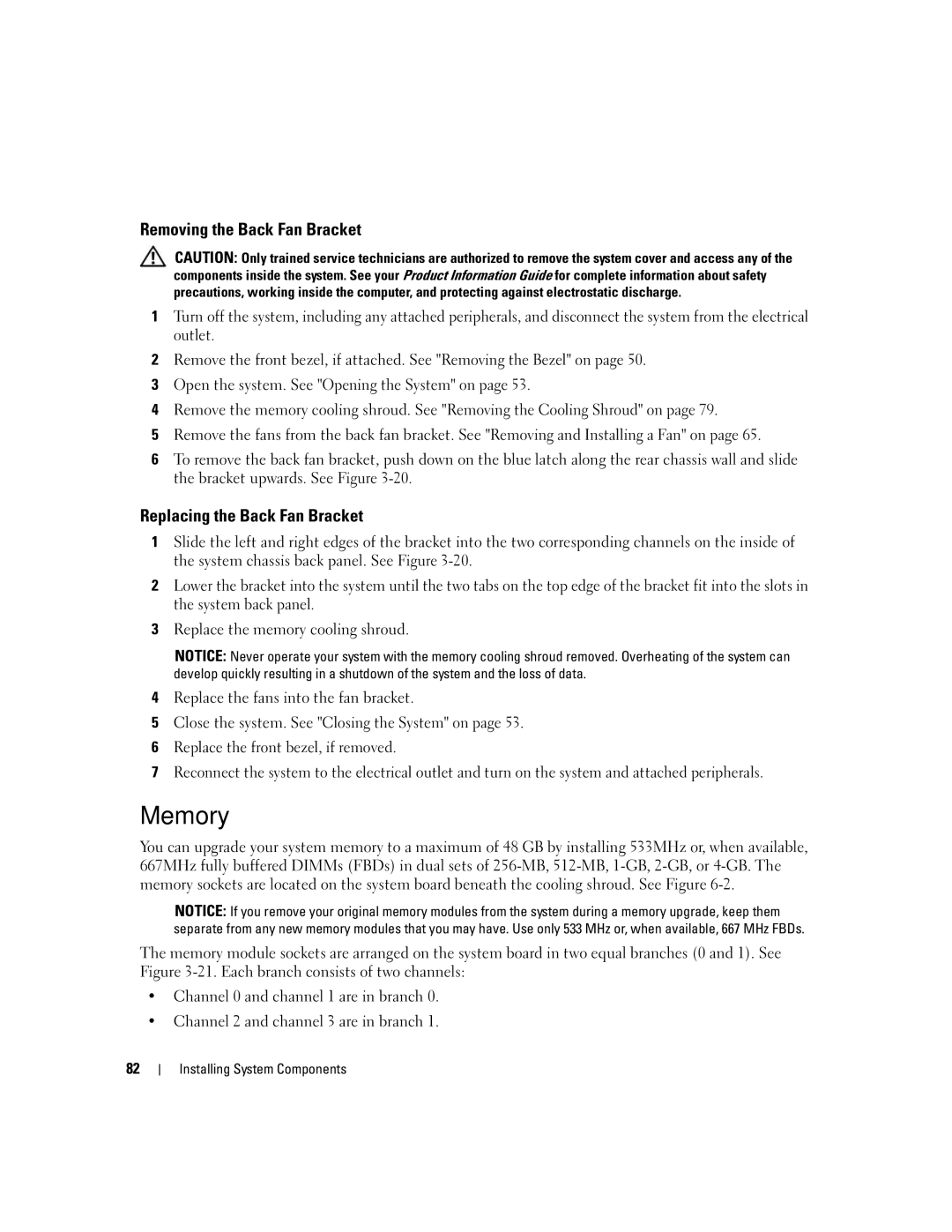Removing the Back Fan Bracket
CAUTION: Only trained service technicians are authorized to remove the system cover and access any of the components inside the system. See your Product Information Guide for complete information about safety precautions, working inside the computer, and protecting against electrostatic discharge.
1Turn off the system, including any attached peripherals, and disconnect the system from the electrical outlet.
2Remove the front bezel, if attached. See "Removing the Bezel" on page 50.
3Open the system. See "Opening the System" on page 53.
4Remove the memory cooling shroud. See "Removing the Cooling Shroud" on page 79.
5Remove the fans from the back fan bracket. See "Removing and Installing a Fan" on page 65.
6To remove the back fan bracket, push down on the blue latch along the rear chassis wall and slide the bracket upwards. See Figure
Replacing the Back Fan Bracket
1Slide the left and right edges of the bracket into the two corresponding channels on the inside of the system chassis back panel. See Figure
2Lower the bracket into the system until the two tabs on the top edge of the bracket fit into the slots in the system back panel.
3Replace the memory cooling shroud.
NOTICE: Never operate your system with the memory cooling shroud removed. Overheating of the system can develop quickly resulting in a shutdown of the system and the loss of data.
4Replace the fans into the fan bracket.
5Close the system. See "Closing the System" on page 53.
6Replace the front bezel, if removed.
7Reconnect the system to the electrical outlet and turn on the system and attached peripherals.
Memory
You can upgrade your system memory to a maximum of 48 GB by installing 533MHz or, when available, 667MHz fully buffered DIMMs (FBDs) in dual sets of
NOTICE: If you remove your original memory modules from the system during a memory upgrade, keep them separate from any new memory modules that you may have. Use only 533 MHz or, when available, 667 MHz FBDs.
The memory module sockets are arranged on the system board in two equal branches (0 and 1). See Figure
•Channel 0 and channel 1 are in branch 0.
•Channel 2 and channel 3 are in branch 1.
82
